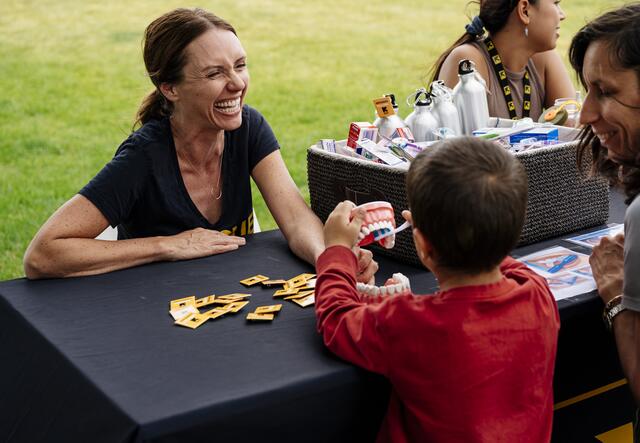For the past three years, the International Rescue Committee (IRC) in Salt Lake City has partnered with the Rape Recovery Center (RRC) to increase education opportunities focused on sexual violence prevention and education. Through Department of Justice funding, the RRC has partnered with organizations, like the IRC in Salt Lake City, to make our community safer through education, awareness, and group discussions engaging men and boys. Understanding that some communities face language and cultural barriers to access this critical information, the RRC partnered with the IRC in Salt Lake City to engage refugee and new American communities, especially male-identifying members age 14 and over, to participate in tailored counseling, support groups, and educational programming to help them become advocates for a safer community.
“Because of the partnership with the IRC, we were able to reach a big audience in the refugee community and implement its program successfully. These are communities that we have never had the opportunity to work with, which has been exciting. I would also say that working with refugee communities has affected our perspective in our work with all communities in a positive way that is more inclusive and accessible,” said Sonya Martinez-Ortiz, Executive Director of the RRC.
The IRC in Salt Lake City’s health team spearheaded the project, working closely with RRC staff to develop and implement curriculum. Additional efforts were made to build trust with new learning cohorts, to ensure participants felt safe to engage and discuss the, sometimes, sensitive materials. Over the course of the project, the health team completed three men’s group cohorts that ran for four weeks each. Each course involved groups of men from different language backgrounds, including two Kinyarwanda sessions, and finally Pashto and Dari speaking groups. The series covered topics such as aspects of healthy relationships, breaking down gender roles, supporting families, identifying signs of abuse, and more.
Navigating the differing cultural views was a crucial element to making progress with the participants. Each group session was led by a facilitator who presented on a topic, then opened up questions to the group for further discussion and learning from each other. As the sessions continued, trust was gained between the participants and each group engaged deeper with the workshop content.

The IRC in Salt Lake City has worked to provide education and safety resources to families for more than a decade, understanding that these resources need to be available to all Utahns, including our newest neighbors. However, much of this programming and available resources were tailored only for women, rather than engaging men in the discussion. “I think we realized if we only provided education to women and not men, it was not going to be effective,” said Jonessa White, health program specialist. “We really wanted to give understanding about conversations around consent, and what that looks like in the United States. We felt like it was really important to provide that cultural context.”
Through this partnership, the IRC in Salt Lake City has reached men from many different cultures through the educational workshop series, increasing access to information about preventing sexual violence, improving safety within communities, and encouraging men to become community advocates for safety. “We are grateful for this partnership that allowed us to reach our goals and further our mission. The IRC has been a great partner to work with. We shared our knowledge, skills and resources to engage the refugee community in conversation that participants would agree helped them better understand and navigate a new home and culture,” said Sonya Martinez-Ortiz.
Though the formal partnership is coming to a close, the IRC in Salt Lake City’s health team will continue efforts to reach men and boys through an ongoing collaborative group: Masculinity and Male Roles. This will be coupled with ongoing group discussions and resources developed for education on sexual and reproductive health.
The IRC in Salt Lake City continues to develop and implement innovative and creative programming to meet the needs raised by the communities we serve. Through robust partnerships and broad community support, the IRC works to increase access to needed resources and community services, including ensuring ready access to vital information for newly arrived families settling into our community. You can support our efforts moving forward by making a one-time gift or starting a monthly contribution at Rescue.org/GiveSLC.